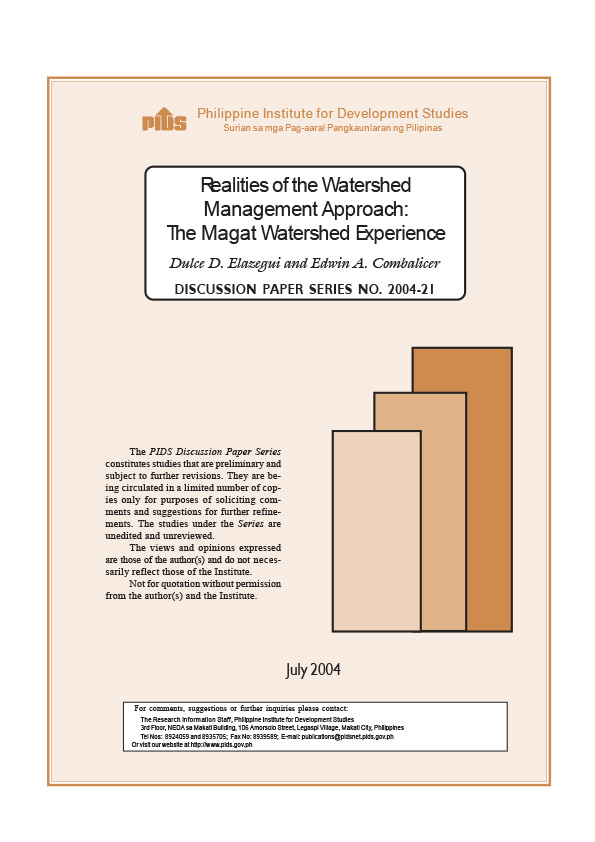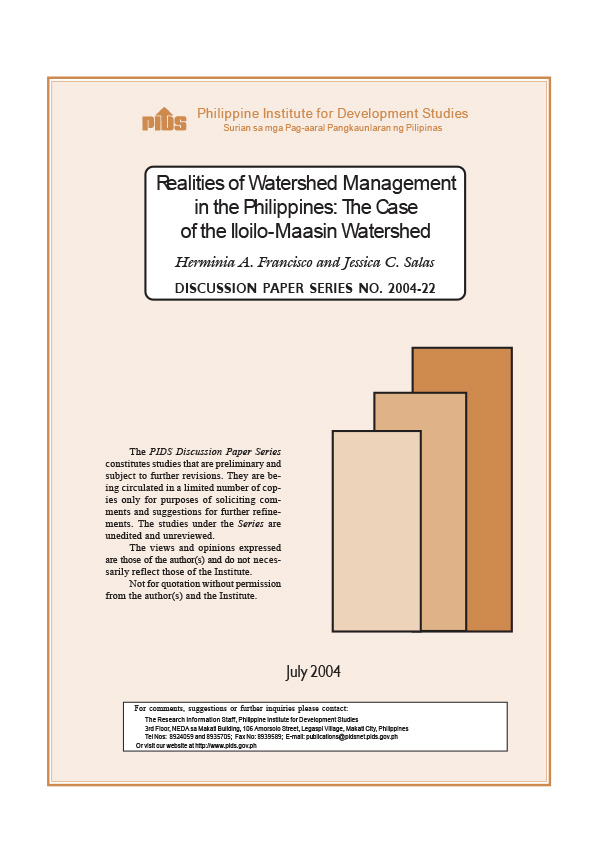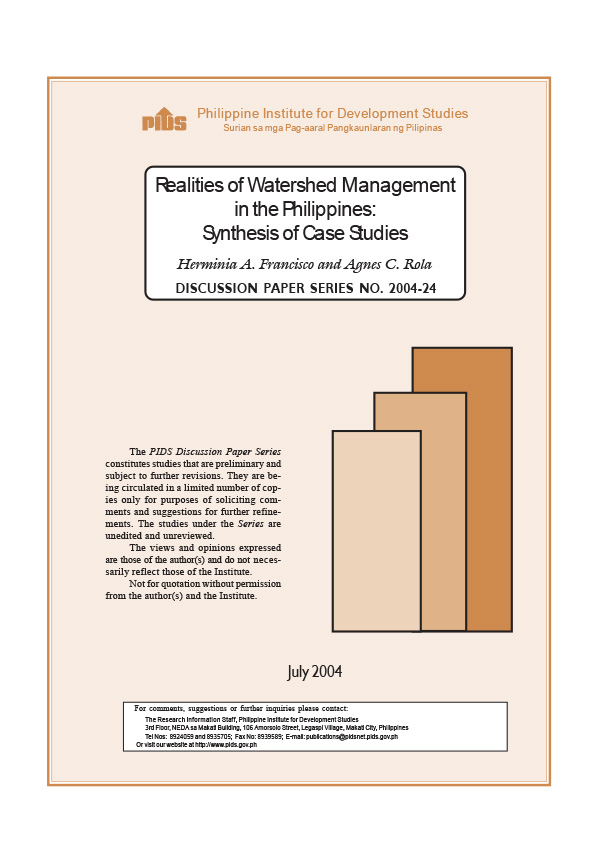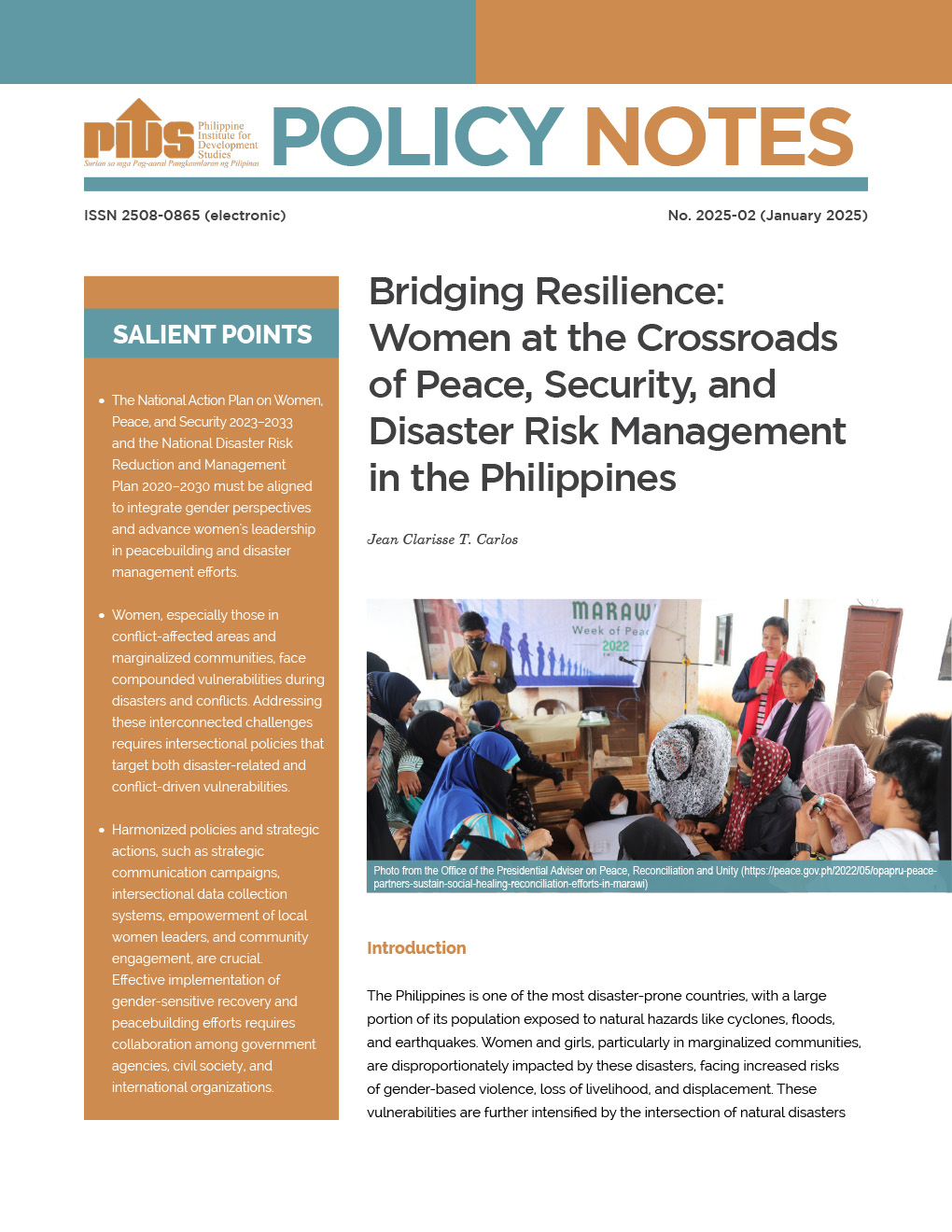This paper aims to showcase the experience of the Magat watershed in the implementation of the watershed management approach. Magat watershed was declared as a forest-reservation area through Proclamation No. 573 on June 26, 1969 because of its great importance to human survival and environmental balance in the region. The Magat case demonstrates the important role that ‘champions’ like the local government unit (LGU) could play in managing the country’s watersheds. With the Nueva Viscaya province constituting 97% of the Magat watershed, the provincial government was committed to provide a strong management support system to the watershed. This involved interplay of critical elements, i.e., favorable policy and political environment, enabling social and institutional mechanisms, adequate financial support, and capable and committed actors and players. The management approach adopted in Nueva Vizcaya treated the watershed as a ‘lifeshed’ where human concerns are connected with land and water resources. It was premised on ‘managing people first’ to relate society’s interests to the use of watershed resources. The provincial government was able to harness various stakeholders’ participation and tap technical and financial support. It provided incentives for people to join in participatory management schemes and to adopt conservation practices. The ‘feeling of control and sense of ownership’ served as ‘lifelines’ for individuals and organizations to sustain the watershed.
Citations
This publication has been cited 2 times
- Camacho, Leni D. et. al. 2012. Traditional forest conservation knowledge/technologies in the Cordillera, Northern Philippines. Forest Policy and Economics, 22(C), 3-8. Elsevier.
- Rola, Agnes C. and Herminia A. Francisco. 2004. Realities of watershed management in the Philippines: Synthesis of case studies. Discussion Papers DP 2004-24. Philippine Institute for Development Studies.













